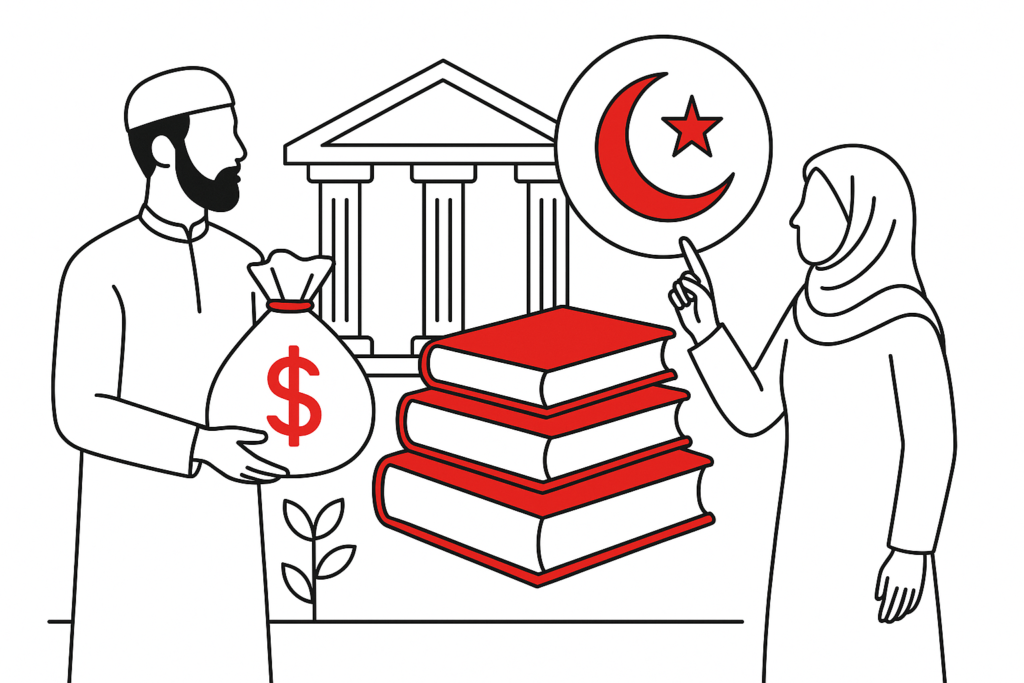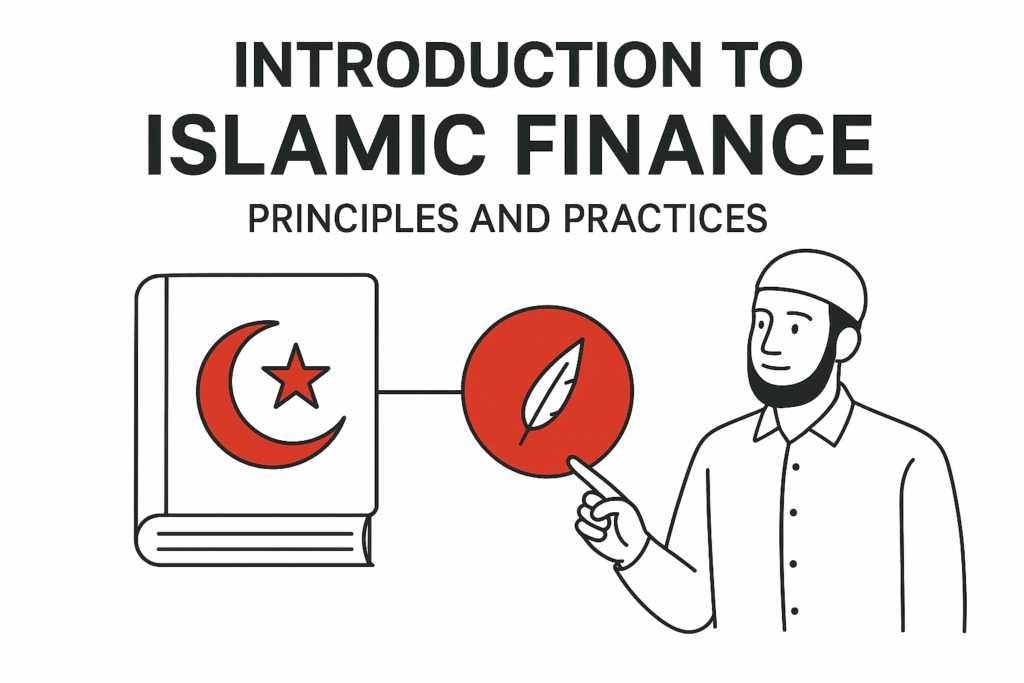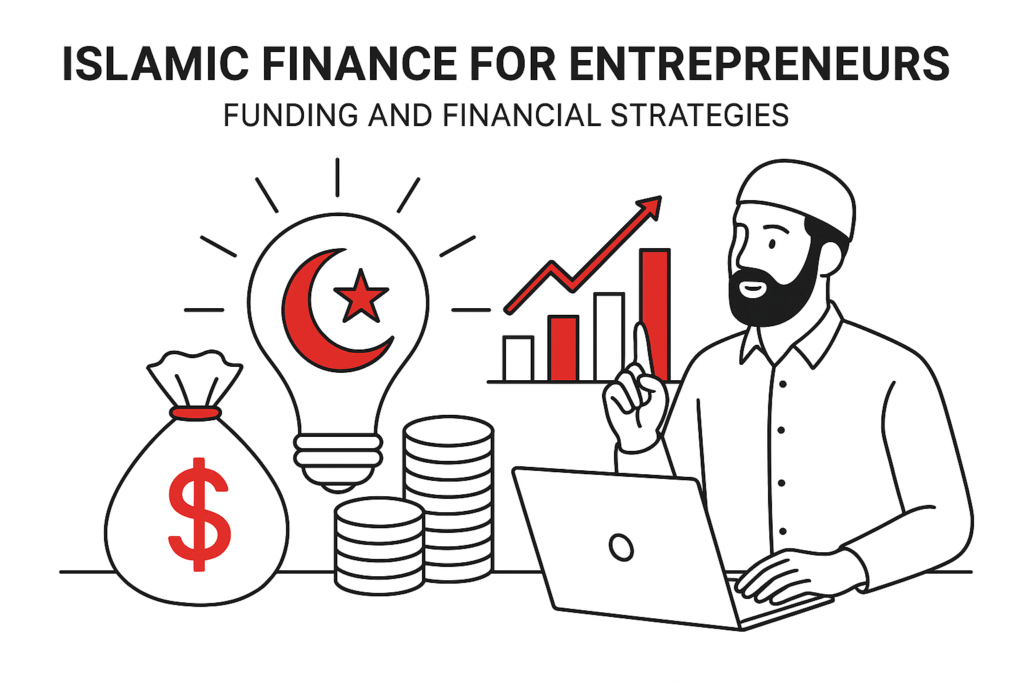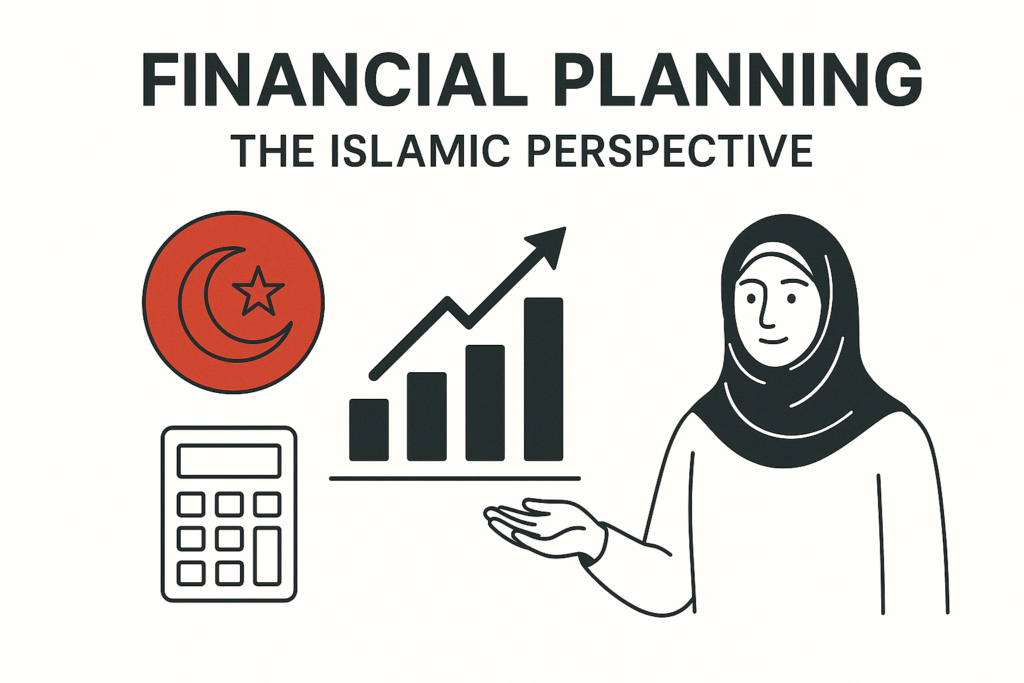Principles Of Islamic Wealth Management

THE CONCEPT OF ISLAMIC WEALTH MANAGEMENT
Islamic wealth management is a strategic approach essential for managing your financial resources effectively, aligning with both your worldly and spiritual goals. Recognize that wealth is Allah’s property, granted to you as a divine trust to be used responsibly for the benefit of humanity. It enables you to achieve success in both your worldly and spiritual pursuits. Remember that wealth is the property of Allah, granted to you as a divine gift to be utilized responsibly for the betterment of humanity. As a Khalifah or vicegerent, you must manage your wealth in a Shari’ah-compliant manner. Wealth management from an Islamic perspective follows the proper guidance of Shari’ah, which mostly takes a different route from the conventional point of view. As stated in the Shari’ah, wealth is given to us by Allah, and thus, it has to be used and managed following Allah’s obedience.
In the Qur’an, it is stated to spend the wealth relatively. “And [they are] those who, when they spend, do so not excessively or sparingly but are ever, between that, [justly] moderate.” Al-Furqan (25): 67.
It is imperative to protect your wealth lawfully, adhering diligently to Shari’ah law and avoiding any wrongdoing. Settling financial matters before death, such as debts, unfulfilled Hajj (pilgrimage), missed fasts, and other commitments, is mandatory to avoid transgressions. Islamic wealth management involves proficiently managing wealth according to Islamic finance principles, which regulate all aspects of Muslim life, including financial dealings. To achieve effective financial planning, you must adhere to several fundamental principles guiding Islamic wealth management. Refrain from engaging in interest-based transactions, uphold ethical investing principles, and ensure strict adherence to Islamic law when making any investments.
Unlike conventional wealth management, Islamic wealth management prohibits interest (riba) and promotes profit and loss sharing (PLS) arrangements, such as mudarabah and musharakah. Embrace ethical investing as a fundamental principle of Islamic wealth management. Direct your investments towards enterprises that comply with the principles of Islamic law, considering them halal or permissible. Allocate funds to industries aligning with your values, such as healthcare, education, and renewable energy, while refraining from investing in industries deemed haram or prohibited, such as alcohol, tobacco, and gambling. Collaborate with financial institutions specializing in Islamic finance to ensure all investments conform to Islamic standards. This may involve working with Islamic financial institutions, researching halal investment opportunities, and providing ongoing support to ensure your wealth is managed according to Islamic principles. Islamic financial planning shows the process of planning a better life by planning, selecting and managing wealth and finances in life by following the rules and demands of Islamic teachings to achieve short-, medium–, and long-term life goals both for blessings in the world and hereafter.
THE SCOPE OF ISLAMIC WEALTH MANAGEMENT
Islamic wealth management is a new emerging financial service industry that attracts many wealthy people to trust their assets managed in accordance with Islamic values and principles. The Qur’an is the primary source in the epistemology of Islamic knowledge and science. The Islamic conception of wealth management from the Qur’anic framework is very comprehensive and covers all philosophical foundations, ontology, epistemology, and axiology. The Islamic wealth management process contends three aspects: (1) wealth creation, (2) spending, and (3) saving or investment. Wealth creation has a relationship with the fulfilment of the infaq (spending) objective. The objective is to promote Maqasid Al Shari’ah, promoting justice and welfare to achieve Falah. (Ismail & Aisyah, 2023):
- Wealth Accumulation: The Qur’an encourages Muslims to save and invest their wealth. “And let not your hand be tied to your neck nor open it with a complete opening, lest you should become blamed and destitute” [Qur’an 17:29]. The Prophet Muhammad (peace be upon him) said, “The best wealth is a tongue that remembers Allah, a grateful heart, and a believing wife who helps him in his faith” [Sunan Ibn Majah 4169]. Systematic saving and investing for purposes like emergency expenses, asset acquisition, education planning, Hajj fund, and retirement planning. Surah Jumu’ah, verse 10, encourages accumulating wealth by seeking Allah’s bounty and remembering Him after prayer to attain success.
- Wealth generation: The Qur’an encourages Muslims to work hard and earn a living. “And when the prayer has been concluded, disperse within the land and seek from the bounty of Allah, and remember Allah often that you may succeed” [Qur’an 62:10]. The Prophet Muhammad (peace be upon him) said, “No one eats better food than that which he earns by his work” [Sahih al-Bukhari 6465].
- Wealth Purification: The Qur’an encourages Muslims to purify their wealth by giving to charity. “Take, [O, Muhammad], from their wealth a charity by which you purify them and cause them to increase and invoke [Allah’s blessings] upon them. Indeed, your invocations are reassurance for them. And Allah is Hearing and Knowing” [Qur’an 9:103]. The Prophet Muhammad (peace be upon him) said, “Charity does not decrease wealth” [Sahih Muslim 2588].
- Wealth distribution: The Qur’an encourages Muslims to distribute their wealth fairly. “And in their wealth is a recognized right for the [needy] petitioner and the deprived” [Qur’an 70:24-25]. The Prophet Muhammad (peace be upon him) said, “The upper hand is better than the lower hand. The upper hand is the one that gives, and the lower hand is the one that receives” [Sahih Muslim 1033].
- Wealth Protection: The Qur’an emphasizes the importance of protecting one’s wealth. “O you who have believed, do not consume one another’s wealth unjustly but only [in lawful] business by mutual consent” [Qur’an 4:29]. The Prophet Muhammad (peace be upon him) said, “Whoever cheats on us is not one of us” [Sahih Muslim 101]. Safeguarding assets from potential risks associated with untimely death, disability, illness, and accidents”. Preserving wealth is considered one of the Daruriyyat in Islam and Maqasid Shari’ah. The Prophet Muhammad (peace be upon him) stated that protecting one’s property and wealth is a noble act.
- Investment Management: Managing investments following Islamic principles, such as PLS contracts, Mudarabah, Murabaha, and Ijarah, while avoiding investments in haram goods and services like alcohol and adult entertainment.
- Wealth Planning: Developing a comprehensive financial plan considering financial goals, risk tolerance, and investment preferences, while adhering to Islamic principles.
- Estate Planning: Helping clients plan for the distribution of their assets after death in accordance with Islamic law (Mirath), providing for family needs, paying off debts, and making charitable donations. As stated in Surah An-Nisa, verse 11, inheritance distribution is guided by specific Islamic principles.
- Risk Management: Managing risks related to financial assets and investments using Islamic insurance (takaful) and other risk management products.
- Zakat Planning: Assisting clients in calculating and paying zakat, identifying eligible recipients, and determining the appropriate amount to pay.
- Waqf: Supporting clients in identifying and supporting charitable causes in accordance with Islamic principles, such as providing for the poor and supporting education and healthcare initiatives through waqf (endowment).
THE PROCESS OF ISLAMIC WEALTH MANAGEMENT
Islamic wealth management is a structured approach enabling individuals to manage their wealth in alignment with Islamic principles. The process includes:
- Initial Consultation: Gathering financial and non-financial information, and discussing financial goals, risk tolerance, investment preferences, and values.
- Financial Planning: Analysing financial positions, improving cash flow and net worth, and developing a comprehensive financial plan that includes investment recommendations, estate planning strategies, risk management techniques, and zakat planning.
- Investment Management: Managing investments in accordance with Islamic principles, investing in halal industries, and avoiding haram industries.
- Risk Management: Managing risks associated with investments and other financial assets using takaful and other risk management products like mudarabah and wa’d undertakings.
- Zakat Planning: Calculating and paying zakat, identifying eligible recipients, and determining the appropriate amount to pay.
- Ongoing Monitoring and Review: Regularly monitoring investments and financial assets to ensure alignment with financial goals and Islamic principles and conducting periodic reviews of the financial plan.
- Estate Planning: Planning for the distribution of assets after death in accordance with Islamic law of inheritance (Mirath), ensuring debts are paid off, and establishing waqf on behalf of the client. (Zarinah Mohd Yusoff, Engku Rabiah Adawiah Engku Ali, 2021)
To learn more about Islamic finance and enhance your understanding of these principles, we invite you to join our online courses and programs. Visit our website, Marifa, at https://www.marifaacademy.com/ for more information.
REFERENCES
Ismail, N., & Aisyah, S. (2023). Reexamining the Notion of Wealth Management : Insights from the Qur ’ an and Hadith Nurizal Ismail Institut Agama Islam Tazkia Siti Aisyah ( Corresponding Author ) Universitas Gunadarma Email : aisyahdaruss.staff@gunadarma.ac.id. 1–14.Zarinah Mohd Yusoff, Engku Rabiah Adawiah Engku Ali, H. Z. (2021). Islamic Financial Planning Towards Sustaining the Financial Wellbeing of Muslim Families in Malaysia Post Covid-19. TUJISE, 1(Special Issue).






Responses